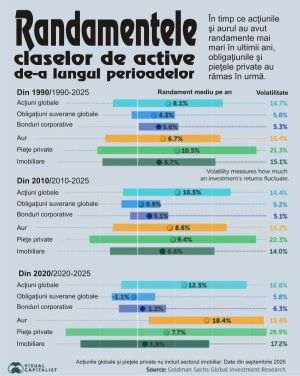
Conclusion
Positioning freedom as a condition for the potential of spiritual elevation to become effective opens the complementary aspect of the concept of the "Kingdom of God" that I propose, compared to interpretations that speak of the "Kingdom of God" only as an inner moral reservoir with which we would have been equipped at our divine origin. Those interpretations have the merit of overcoming the lack of freedom in past human organizations that openly practiced it; the retreat into a "Kingdom of God" hidden in the soul, inaccessible to hostile circumstances, was justified and conferred freedom in the face of injustice, seclusion, and even torture and death. However, today, when "freedom" as a moral, economic, and socio-political value is promoted by the constitutive acts of most countries (in different interpretations of the concept), limiting it to inner freedom is anachronistic and calls for reactions like Latin American liberation theology. Inner freedom, as an idea, is a gain already achieved for thousands of years, and its feeling accompanies spiritual elevation beyond conditions; today, however, conditions allow the aspiration for inner freedom to be inspired by social, economic, and political circumstances - overcoming alienation, regaining unity for human and societal integrity. This is the aspect emphasized by the concept of the "Kingdom of God" outlined here. The need for this book emerged during research on the causes of the "subprime crisis" triggered in the United States in 2007-2008, which radiated throughout Christianity, transforming, in 2010, into the "debt crisis." Contrary to the opinion of most financiers (including prestigious Nobel Prize winners in economics), the debt crisis could not be overcome; global debt increases on a divergent curve, at wide intervals of time distancing itself from the curve of global Gross Domestic Product growth. We already have 13 years of continuous, unsolvable crisis: tension in the countries of origin is retained by exporting the crisis to neighboring areas (the dollar and the euro function as currencies for the internationalization of the crisis), but this is a "pyramid scheme" with a known end.
In my book "The Golden Calf/The Meaning of Interest"/Bucharest/BURSA Publishing House/2017, I highlighted the fact that we live in an economic, financial, socio-political, and religious organization (of Christianity) whose foundations are the result of a radical mutation suffered in Shakespeare's century, through the opening of two new directions:
1.The great geographical discoveries which: i) required credits for exploration financing; ii) initiated arbitrage activity between values differently attributed on the destination continent compared to the return continent; iii) initiated globalization;
2.The Reformation (Protestantism), which proved permeable to the legalization of interest, facilitating lending.
I argued in "The Meaning of Interest" that, in principle, the size and profit from arbitrage activity are inversely proportional to the progress of globalization (and the homogenization of values conveyed between different branches of activity). Thus, if interest on credit initially facilitated globalization, in turn, globalization (which is accompanied by a process similar to that of communicating vessels) suffocates interest. The result is that the return no longer justifies interest, so this model of socio-political organization for economic development, initiated 500 years ago, has a predictable, fatal end. I monitored the phenomenon in real-time, in analyses published in the Romanian financial daily BURSA (with figures, graphs, reports on significant events, and statements from experts in the field) and structured the information and conclusions in my 2015 book - "The Solution to the Crisis/Terminus a quo"/Bucharest/RAO Publishing House and BURSA Publishing House. On page 98 (for solutions I and II) and respectively page 115 (for III), I write: "Through articles published in BURSA and through presentations at conferences organized by BURSA, in the last four to five years, I have slipped in three kinds of suggestions about what I believe would constitute specific solutions to the financial crisis, as well as the other contemporary crises, among which the financial crisis is only the most visible (food crisis, water crisis, energy crisis, and spiritual crisis) [...]: I. A solution of a spiritual nature, with political implications - Revelation (we have the rare opportunity to dream necessarily Utopia, the world we desire), leading to a "Charter" of the spiritual status of man (the fundamental thesis: "Man has the status of a spiritual being," could establish a Constitution). II. A solution of a political nature, with social implications - transition to direct democracy [...]; III. A solution of a social nature, with economic implications - polycentric organization, on the principle of self-governance, creating conditions for complementing competition with cooperation, redefining management for profit maximization, but without wasting natural resources and degrading the planet; it is an alternative path to globalization, opposed to that recommended by male Nobel laureates and Pope Benedict XVI." The text I conclude here responds to what I anticipated eight years ago; I consider its need pressing; wars were predictable (they are mentioned as a lack of a solution in "Terminus a quo"), consequences of a lack of imagination. The sketch of the concept of the "Kingdom of God" that I proposed represents a model through which I urge contemplation. I hope it deserves the name "Apocalypse." Because "Apocalypse," at its origins, does not mean the end of the world but the revelation of the new world - it is what every new generation needs, and we, more than others, find ourselves at a crossroads.
Epilogue
A book about the "Kingdom of God on Earth" flows within the riverbed of the promise of Jesus Christ: "The time is fulfilled, and the kingdom of God is at hand." (Mark 1:15) Navigating across the lines, the reader has reached the other shore. Once the book is read, the Kingdom should come at a stroke of an oar. The Letter and the Universe. It is an expectation inspired by the Gospels. Out of the 49 references to the Kingdom of God by Jesus in the canonical Gospels that I have identified, ten - one-fifth - affirm one and the same idea, that the Kingdom of God is near. The futile expectation (two thousand years) has caused the term "near" to no longer mean "immediate future" but "inner universe." What could be closer?! The radiance of the awaited Kingdom of God, expected to appear very soon - "Verily I say unto you, There be some standing here, which shall not taste of death, till they see the Son of man coming in his kingdom." (Matthew 16:28) - has transformed into soulful radiance, and the concept of the Kingdom of God no longer encompasses the revolutionary meaning in socio-political life. Restoring this meaning in the outlined concept presented earlier configures a harmonious, relaxed, prosperous, solidarity-driven society, animated by compassion, where members are free, cordial, economically active, and available for spiritual upliftment. However, the splendor promised by the expression "Kingdom of God" is not found in the outlined concept. The splendor should be found in a society structured as such. The good intention of the study and interpretation is hoped to confer the necessary beauty to the concept of the "Kingdom of God," which should be sought in the first two Books of this study. Contact with the sages of old can yield delight.









































